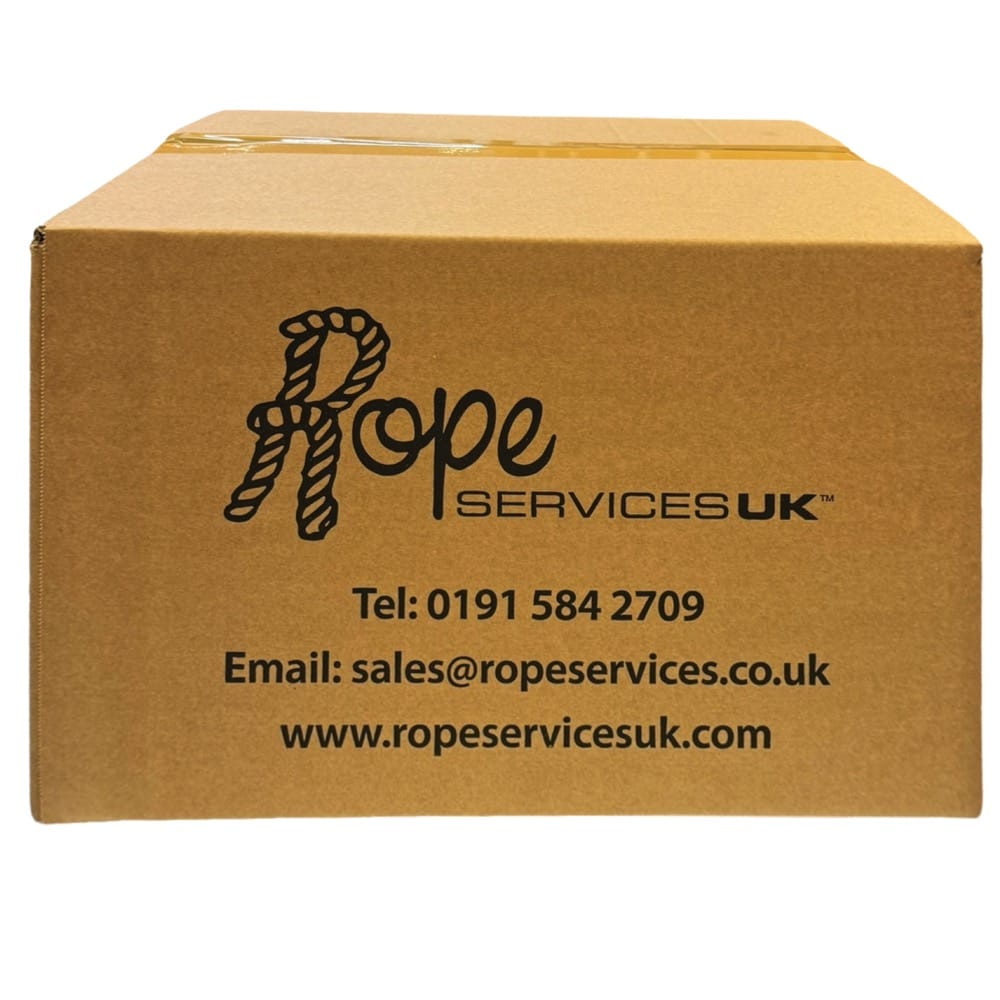25kg Decking Rope Off-Cuts – Mixed Lengths & Diameters
| Quantity | Discount |
|---|---|
| Order 2 Boxes | 3% off |
| Order 3 Boxes | 5% off |
| Order 4 or more Boxes | 10% off |
£40.00
Our 25kg decking rope off-cuts box offers a versatile, cost-effective solution for anyone looking for durable decking ropes. This box contains a mix of high-quality natural and synthetic ropes, ideal for outdoor and landscaping projects. With 25kg of assorted lengths and diameters, this selection provides flexibility for a wide range of applications, from decorative decking to practical outdoor uses.
What’s in the Box?
This 25kg decking rope off-cuts assortment includes natural and synthetic ropes in mixed lengths and diameters. Each piece offers the durability and aesthetic appeal needed for decking and landscaping projects. Use these ropes for borders, railings, or as decorative features on patios and gardens.
Why Choose Decking Rope Off-Cuts?
Decking ropes add both function and charm to outdoor spaces. Natural ropes offer a rustic appeal, while synthetic ropes bring extra durability. Each type holds up well in outdoor conditions, making these off-cuts a practical choice for varied weather exposure.
Key Features of 25kg Decking Rope Off-Cuts:
- Natural and Synthetic Blend: Combines the aesthetics of natural fibres with the strength of synthetic materials.
- Durable for Outdoor Use: Resists wear, whether used in sunny, damp, or changing environments.
- Flexible Lengths and Diameters: Adapt to various applications, such as fencing, securing areas, or adding decorative elements.
Ideal Uses for Decking Rope:
- Decorative Railings and Fencing: Adds a classic, natural look to outdoor areas.
- Garden and Patio Borders: Perfect for defining spaces in landscaping projects.
- Rustic-Themed Décor: Ideal for projects where natural aesthetics are essential.
- Practical Ties and Securing Rope: Use for securing furniture covers, lightweight tarps, or outdoor structures.
Learn More:
This decking rope off-cut box provides an affordable, sustainable way to enhance your outdoor space. For additional tips on rope care and maintenance, explore our Rope Guides and Product Care Tips.
Synthetic Rope and Its Properties
Synthetic rope is made from man-made fibers such as nylon, polyester, polypropylene, and polyethylene. These ropes are known for their high strength, durability, and resistance to various environmental factors. Unlike natural ropes, synthetic ropes do not absorb water, making them ideal for use in wet and outdoor environments. However, synthetic ropes have their own set of characteristics and considerations that you should be aware of.
Behavior in Wet Conditions
One of the key advantages of synthetic ropes over natural ones is their minimal water absorption. Synthetic ropes generally do not shrink or expand when exposed to moisture, making them highly reliable in marine, industrial, and outdoor applications. However, while they do not absorb water, some synthetic ropes may become slippery when wet, which can affect handling and knot-holding capabilities.
Effects of UV Exposure
Unlike natural ropes, synthetic ropes are resistant to rot and mildew, but they can be affected by prolonged exposure to UV rays. Over time, UV exposure can weaken the fibers, causing the rope to degrade and lose strength. To mitigate this, synthetic ropes can be treated with UV inhibitors or stored out of direct sunlight when not in use.
Resistance to Chemicals and Abrasion
Synthetic ropes are generally more resistant to chemicals and abrasion compared to natural ropes. For instance, nylon and polyester ropes are highly resistant to various oils, acids, and alkalis, making them suitable for harsh industrial environments. Additionally, these ropes have excellent abrasion resistance, which means they can withstand rough surfaces without significant wear.
Elongation and Stretch
Different types of synthetic ropes have varying degrees of elongation. For example, nylon rope is known for its elasticity, which allows it to absorb shock loads without breaking. This makes nylon rope ideal for dynamic applications such as climbing, towing, and mooring. On the other hand, polyester rope has low stretch, making it suitable for applications where maintaining tension is critical.
Care and Maintenance
To extend the lifespan of synthetic ropes, it’s important to follow proper care and maintenance practices. Regularly inspect the rope for signs of wear, abrasion, or UV damage. If the rope shows significant signs of wear, such as fraying or thinning, it should be replaced to ensure safety and performance.
Storage Considerations
When storing synthetic ropes, keep them in a cool, dry place, away from direct sunlight and chemicals. Coiling the rope properly and avoiding tight bends can also help prevent kinks and maintain the rope’s integrity.
Summary
Synthetic ropes offer numerous advantages over natural ropes, including resistance to water, rot, and chemicals. They are durable and strong, making them suitable for a wide range of applications. However, it’s important to be aware of their susceptibility to UV damage and to take appropriate measures to protect the rope from prolonged exposure. By properly maintaining and storing synthetic ropes, you can ensure their longevity and reliable performance in various conditions.



